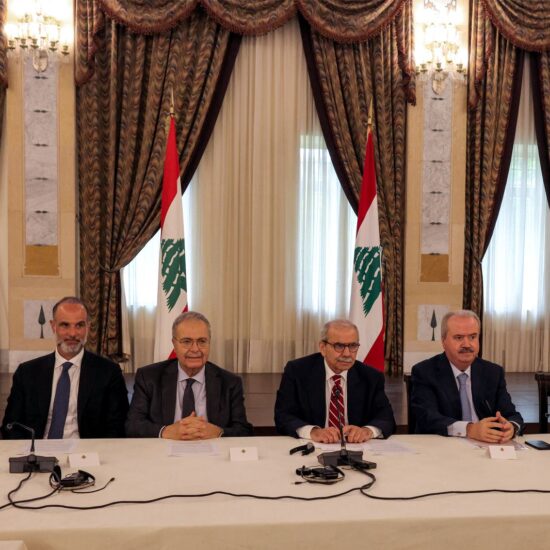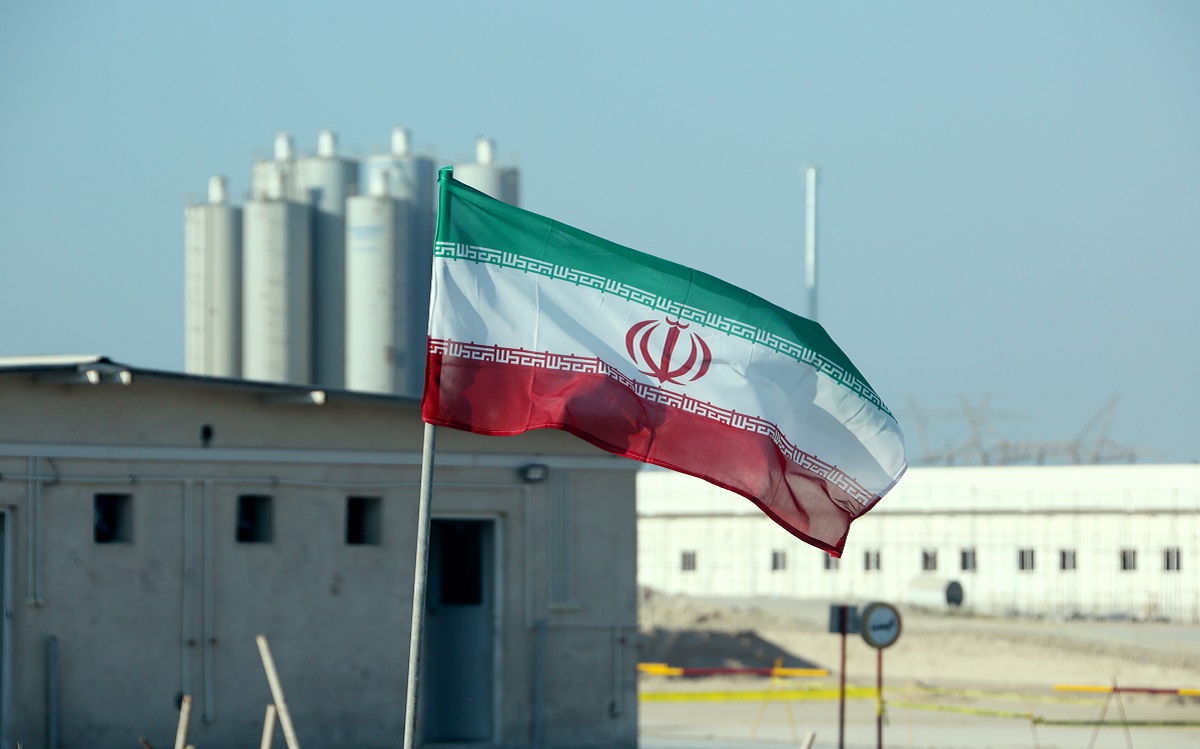
Thousands of teachers took to the streets throughout Iran amid delays by the government to enact reforms to their salaries and pensions.
The protests, which took place on February 22, saw teachers in many of Iran’s major cities, such as Tehran, Isfahan, Mashhad and Shiraz, demand that the government enact the desperately needed reforms. The government promised these reforms for well over a decade as Iran’s economy continues to suffer under the crippling sanctions implemented during the four years of the Trump administration.
Since the implementation of US sanctions, the Iranian economy has seen inflation soar, and salaries, once enough to support a family, become worth close to nothing, forcing many to struggle to survive as the costs of basic goods skyrocketed.
However, now, there appears to be a glimmer of hope for the Iranian people as the US and Iran have all but signed a return to the 2015 Joint Comprehensive Plan of Action (JCPOA) that would see many of the sanctions lifted, allowing for the Iranian economy to begin recovering.
But there may be big problems with that scenario, some analysts say, warning that it’s not really about the people for the Iranian regime, but about clearing sanctions for cronies and removing the Revolutionary Guard from terror lists.
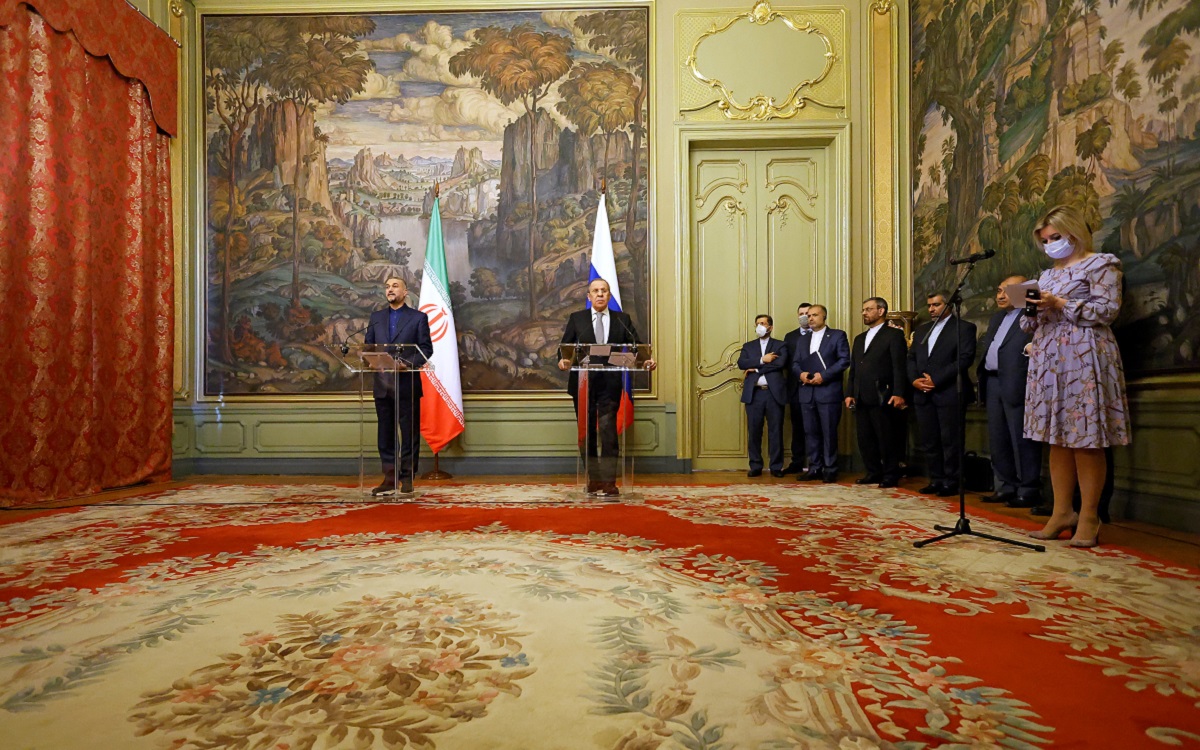
The deadlock
After 11 months of negotiations, which began under Iranian President Hassan Rouhani and were taken over by his successor Ebrahim Raisi, the process was paused as Russia demanded that they be able to continue trading with Iran. Many saw the move as an attempt by Russia to circumvent international sanctions following its invasion of neighboring Ukraine on February 24.
“It was underscored that the revival of the JCPOA must provide for all participants to have equal rights in relation to the unhindered development of cooperation in all areas without any discrimination,” Russian Foreign Minister Sergei Lavrov said during a meeting with his Iranian counterpart, Hossein Amirabdollahian.
According to the Wall Street Journal, the US has flatly rejected Russia’s request. Lavrov, in a joint press conference with his Iranian counterpart Amirabdollahian in Moscow, said that they had received “written guarantees” that Russia’s role in Iran would not be affected as long as their actions are within the scope of the JCPOA.
Hilal Khashan, a professor of political science at the American University of Beirut, says that, despite the 11th-hour negotiations by Russia, both the US and Iran want the deal to succeed and will not allow Russia to get in the way of one.
“I don’t think that the Russians can postpone reaching an agreement for too long. The demands that they are placing are unrealistic,” Khashan told NOW. “The Iranians are desperate for a deal no matter what they say and the US wants to get done with this crisis to focus on other issues, mainly Russia in Europe and China in the Pacific.”
When the JCPOA, more commonly known as the Iran nuclear deal, was first signed in 2015 under the Obama administration, there was a mixed response to the agreement.
Opponents of the deal saw it as the US practically giving money to Iran to fund terrorism and spread its interests in the region, while supporters argued that the sanctions relief was a small price to pay to prevent Iran from getting a nuclear weapon.
The deal was short-lived, as former President Trump pulled the US out of the agreement in May 2018 and began implementing the toughest sanctions that US has ever used against Iran in an effort to bring Iran back to the negotiating table in order for the US to get, according to Trump, a better deal.
While the sanctions succeeded in decimating Iran’s economy, they failed to get the Iranians to negotiate with Trump and saw the Shiite-majority country expand its nuclear program to levels never seen before.
Then, after Joe Biden was sworn into the presidency in January 2021, the US began making efforts to have all parties recommit to the original 2015 deal during meetings in Vienna, Austria.
Now, with negotiations nearly complete, Iran is eagerly awaiting the sanctions relief.
And this is the major problem.
The deal would also see sanctions lifted for other entities, not just Iran’s oil exports and nuclear program.
“That includes some of the regime’s top terrorists, some of the worst human rights abusers, some people who tortured and executed political prisoners,” Gabriel Noronha, the special advisor on Iran in the US State Department under former Secretary of State Mike Pompeo, told NOW.
“It includes sanctions being lifted on the Central Bank of Iran as well as the national Iranian oil company, the national Iranian tanker company that facilitates Iran’s funding of the IRGC through oil proceeds. And there are a lot of other players involved.”
Noronha, who posted a long thread on Twitter criticizing the expected compromises the State Department is allegedly getting ready to make, is opposed to the plans to return to the deal. The agreement is set to expire in late 2025, and he argues that Iran only has to adhere to the original agreement for a short period of time without any long-term assurances that Iran will not try to build a nuclear weapon once the agreement ends.
In addition to the sanctions relief, there has been discussion that the US is considering removing the Iranian Revolutionary Guard Corps (IRGC) from the list of foreign terrorist organizations though Khashan says that “the US will not lift these sanctions.”
“The US will cooperate with Iran but the US never lifts all sanctions on any country,” Khashan explained.
“The Iranians are more eager to sign an agreement than the US. Their economy is in shatters, and they really need to rebuild it. They need to rebuild their infrastructure and there is mounting tension in Iran. And the Iranian regime cannot afford to hold on for too long despite what they say publicly. They need an agreement even if it does not remove all sanctions.”
Even with only some of the sanctions removed, it would go a long way towards helping Iran’s economy recover, as well as expand its regional ambitions.
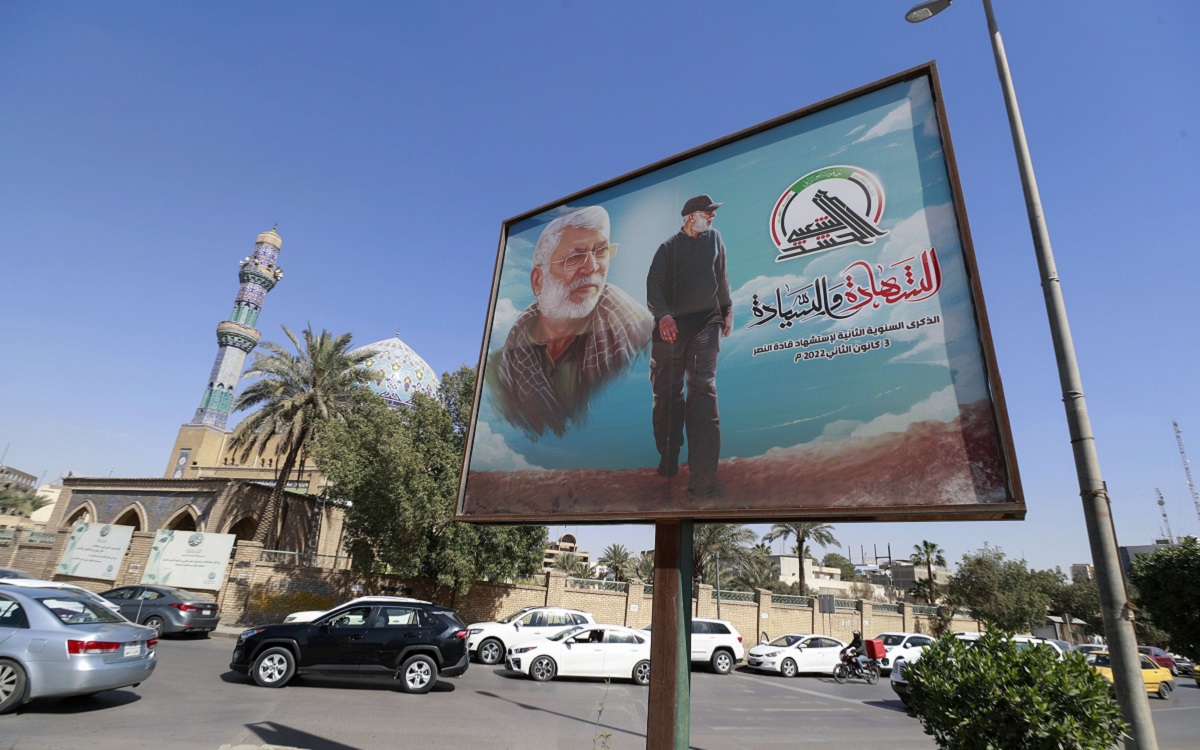
“A source of annoyance”
Following the 1979 revolution in Iran that saw the establishment of the Islamic Republic, the country quickly expanded its regional role, helping to create Hezbollah in Lebanon and fighting a long and bloody war with its neighbor Iraq.
Since the revolution, Iran has only expanded its regional power and ambitions, funding militias throughout the Middle East that have grown to be dominating forces in their countries, such as Iraq and Lebanon.
After the Trump administration imposed sanctions on Iran, it drastically limited its capabilities to support these groups, but, with the possibility of many of these same sanctions being lifted, Iran could soon return to funding its network like it did in the past.
According to Noronha, Iran would have access to anywhere from $90bn to $130bn that it will be able to use as it pleases without any restrictions.
“So, Iran, which used to fund Hezbollah $700m a year… that number had decreased during the Trump administration significantly,” Noronha said. “That support would likely resume at full pace or, perhaps, even higher. The same with Hamas. Hamas is funded around $100m a year. That also decreased and Hamas had to lay off fighters. That number could go up as well.”
While several US presidential administrations have tried and failed to curb Iran’s regional activities, Khashan says that the Biden administration wants to sign the nuclear agreement with Iran, acknowledging that “Iran will never abandon its regional ambitions” and in the hopes of putting the Middle East behind the administration so that it can focus on other issues like China and Russia.
“I think that the US can live with some Iranian activity in the region. They can’t stop them,” Khashan stated. “With or without sanctions, Iran is playing a regional role. The US wants to put this matter behind it while it focuses on other issues. The Iranian issue has become a source of annoyance for the US.”
Khashan believes that Iran does not have much more room to expand in the region as Hezbollah and its Iraqi militias already play significant roles in their respective countries. Meanwhile, the Israelis are “taking care of the spread of Iranian influence in Syria” through targeted airstrikes. Therefore, he says, US attempts at blocking Iran’s regional expansion are ultimately futile. Sanctions have also done little to nothing to curb Tehran’s regional influence ambitions.
“Sanctions under Khamenei are insufficient to get them to capitulate to get the deal that we wanted under the Trump administration,” Noronha said. “That is based on my view that Khamenei views the concessions that he would have to make as the destruction of the Islamic Republic in its entirety. It would be the end of the ideological project.”
In order for Iran to be able to rebuild with the money from the sanctions relief and for the US to be able to focus on other issues, it requires a deal be signed first.
With the negotiations currently paused following Russia’s attempt at skurting international sanctions, it has caused some to worry that the deal could still fall through, something that Noronha and Khashan say is highly unlikely
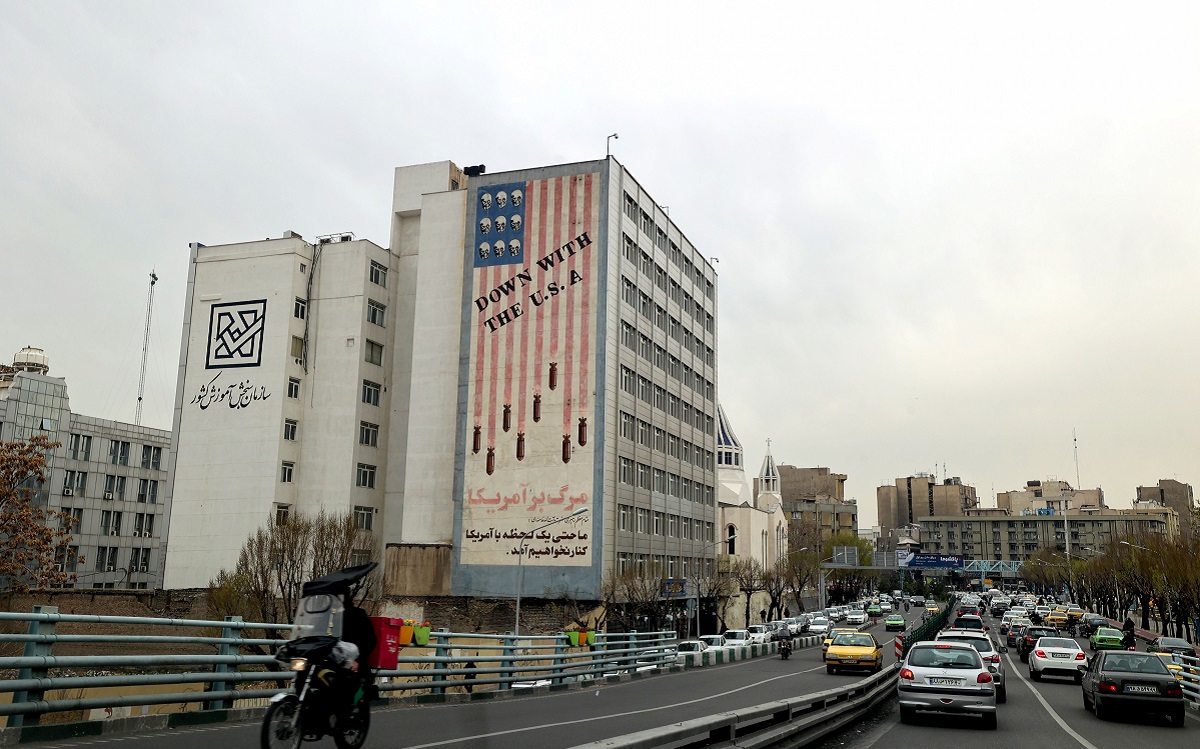
Desperate times
Russia is one of few countries willing to continue doing business with Iran despite the risk of US sanctions.
Regardless of this alliance and Russia hoping to use the nuclear deal to its own benefit, Iran, which has continued to suffer under US sanctions, does not seem poised to allow Russia to potentially upend the possibility of restoring its battered economy.
“Successful conclusion of talks will be the main focus of all,” Saeed Khatibzadeh, spokesperson for Iran’s foreign ministry, wrote on Twitter following the announcement that negotiations were being paused. “No external factor will affect our joint will to go forward for a collective agreement.”
Pause in #ViennaTalks could be a momentum for resolving any remaining issue and a final return.
Successful conclusion of talks will be the main focus of all.
No external factor will affect our joint will to go forward for a collective agreement. https://t.co/pAb0lzGjhd
— Saeed Khatibzadeh | سعید خطیبزاده (@SKhatibzadeh) March 11, 2022
Russia’s invasion of Ukraine and the global response to the war has also seen the price of oil rise drastically throughout the world, surpassing $100 per barrel, as countries have banned the importing of Russian oil.
In order to bring the price down and meet global demand, the US initially reached out to its regional allies, Saudi Arabia and the United Arab Emirates.
Neither country even answered the phone when Biden called.
Shunned by its allies, the US has begun looking at unlikely partners to help tackle the ongoing global fuel crisis: Venezuela and Iran.
“A US delegation went to Venezuela for them to get the Venezuelans to ship oil to the US,” Khashan said. “If the US is willing to establish an understanding with Venezuela, then definitely the US is even more eager to establish an understanding with Iran. That would give Iran more leeway and additional sanction relief.”
“With the deterioration of the US-Saudi relations, Saudi Arabia refused to increase its oil production. I think that some of the hurdles in Vienna were related to US efforts to appease Saudi Arabia by insisting that Iran curtail its regional activities. With the Saudi rejection of the US demands to increase oil production, I think that the US and Iran will come closer,” he later added.
However, Noronha argued that even if Iran would return to the nuclear agreement, it would take too long for Iran to begin exporting oil again and the amount of oil that Iran would be able to provide would be negligible at meeting global demand.
“First off, the JCPOA doesn’t lift any oil sanctions until roughly May,” the former State Department employee stated.
“Second, Iran has had capped wells. It does not have the ability to just ramp up oil production in a split second. If it did, it would probably move its oil exports from one million barrels of oil per day now to just around two million barrels. They don’t have the tanker capacity to do this. They don’t have the ability to just suddenly ramp up. One million barrels of oil on the global market is nice, but it is entirely insufficient on its own.”
Even if Iranian fuel does not provide much relief to the global fuel crisis, a return to the JCPOA would likely satisfy Iran, given the desperately needed sanctions relief, and the Biden administration, which has been extremely vocal about its desire to return to the agreement.
Until the agreement is officially signed, however, it is still possible that no agreement could ultimately be reached.
In the event that a deal falls through, Noronha argues that Iran would work to find other ways to have sanctions removed by increasingly applying pressure on the West, specifically using its militias in Iraq and support for the Houthis in Yemen to bring the West back to the negotiating table to make some kind of agreement that would see sanctions lifted.
Khashan disagreed with this, saying that if the Houthis, supported by Iran, ratcheted up attacks against the US’ Gulf allies, then it would be more of an incentive for countries like Saudi Arabia to “fall in line” and increase oil production.
Rather, Khashan believes that very little would actually change if no agreement was reached.
“There has been no deal since 2018 when Trump pulled away from the 2015 nuclear agreement,” the analyst stated. “If there is no deal, I would expect that the current situation will continue. I don’t expect Iran to exacerbate or increase its base of regional involvement because I think that Iran’s regional involvement has peaked.”
The likelihood of Iran and the US being unable to agree on a deal is slim as both sides want to ensure the success of the negotiations.
“Iran wants sanctions relief. What they care about is sanctions relief,” Noronha stated.
Nicholas Frakes is a multimedia journalist with @NOW_leb. He tweets @nicfrakesjourno.



